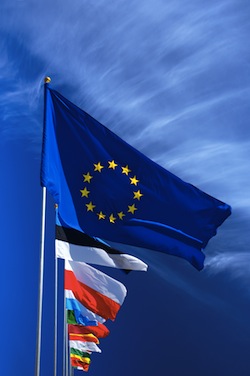The European Commission today said that it will be fining Microsoft €561 million ($731 million) over antitrust violations related to distribution of its Internet Explorer browser — and a humbled Microsoft has now issued a formal response noting that it takes “full responsibility” for the “technical error” that caused the violation, and in no way indicating that it will be appealing the fine.
This is something of a new approach for Microsoft, which has in the past appealed decisions made by the European Commission over antitrust violations. Perhaps because one recent one in June was unsuccessful, and perhaps because it’s not the leviathan it used to be, TechCrunch understands that it is “highly unlikely” it will be appealing in this case. The full statement it issued after today’s ruling:
“We take full responsibility for the technical error that caused this problem and have apologized for it. We provided the Commission with a complete and candid assessment of the situation, and we have taken steps to strengthen our software development and other processes to help avoid this mistake – or anything similar – in the future.”
The case has been ongoing for months and entered formal complaint stage back in October.
You might call the EC’s decision beating a dead horse in a certain regard. Internet Explorer was teetering against Firefox as the leader of the browser market in Europe for a while, with both finally ceding control about a year ago to Chrome. In any case, Microsoft is no longer playing the dominant role that it used to in terms of mindshare, either, with new battlegrounds, like smartphones, well out of its reach in terms of market leadership. Still, Windows remains the most popular desktop PC platform, and so any moves that Microsoft makes to encourage the use of its products, especially in areas where it had been determined to leverage its power before, will be a focus.
The current fine is related to a time when Microsoft was in a different position in Europe, between February 2011 and July 2012. At that time, it was already under scrutiny by the EU over antitrust violations over how it bundled its browser with its operating system, and in the midst of that, it turned out that it was distributing Windows 7 without giving users an obvious way of opting out of selecting its own Internet Explorer as an option, with the glitch affecting some 15 million users, the EC says.
Still, the European Commission itself seems to understand as much as anyone that Microsoft’s time may be passing. Referring to the period when the violation — the technical glitch, in Microsoft’s words — occurred, Joachin Almunia, Commission VP in charge of competition policy remarked, somewhat gingerly, at today’s press conference: “In this case and probably not any more in the future, the monetary [beneficiary] was Microsoft.”
